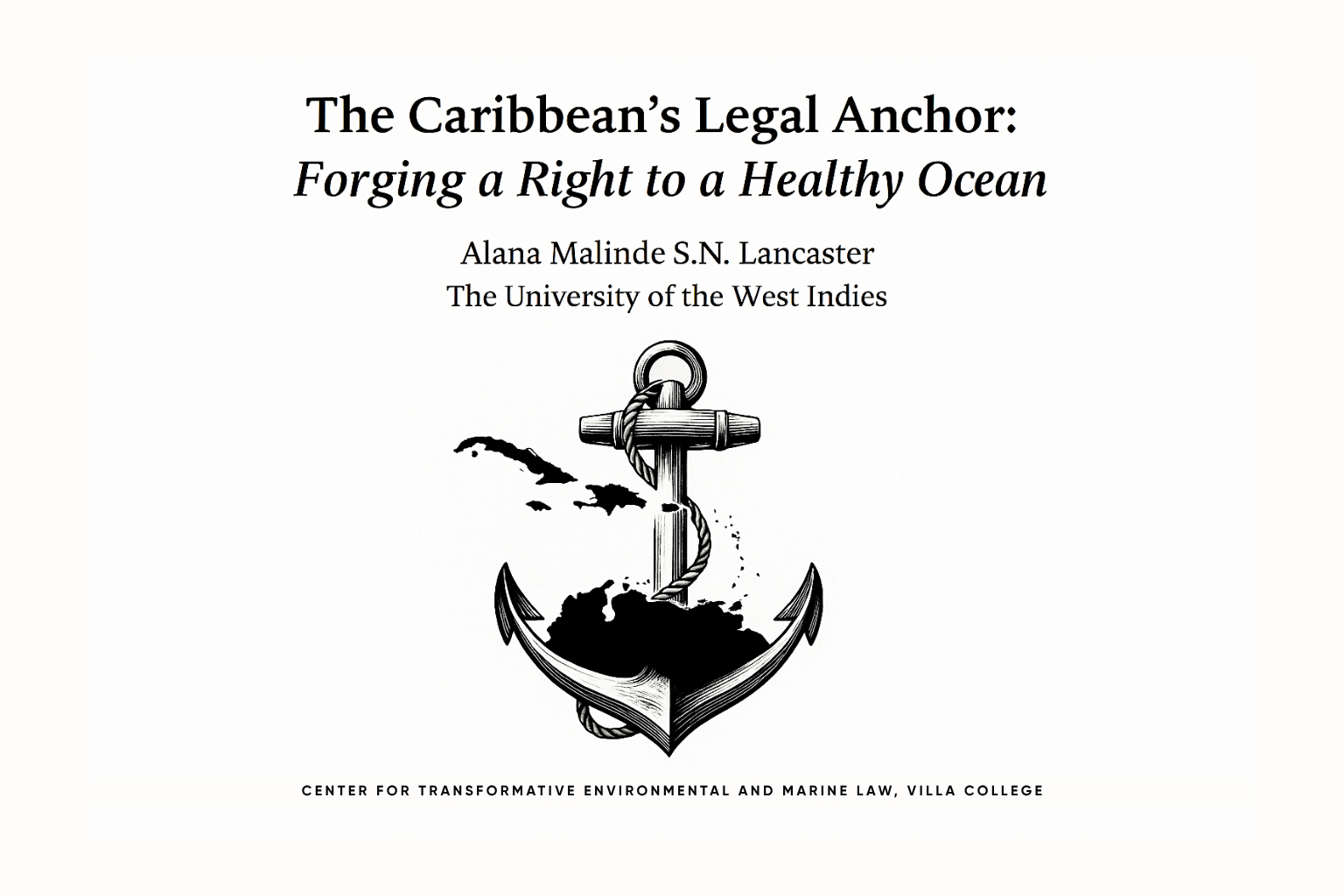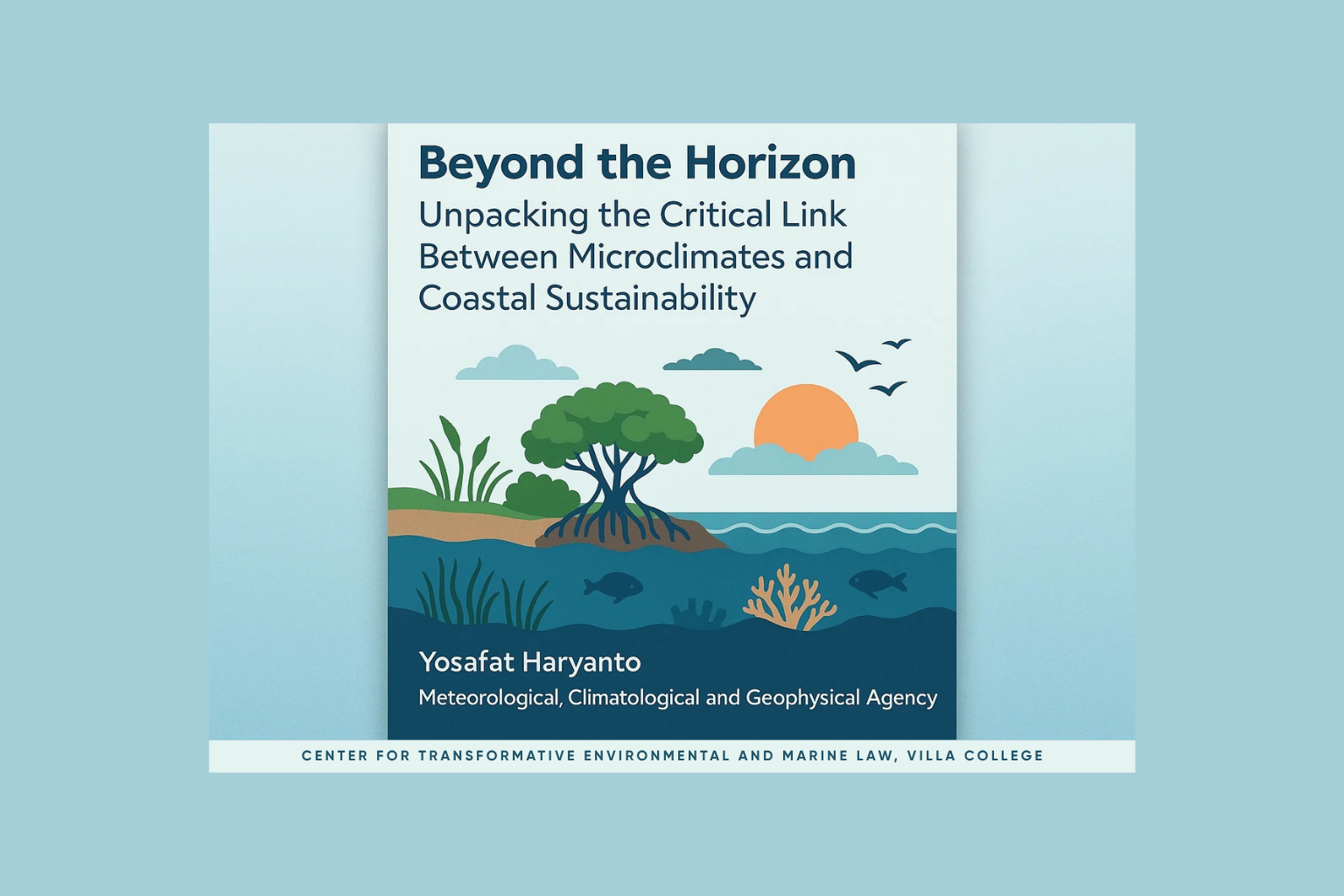When Waves Carry Waste: The Global South's Plastic Burden and the Call for a Just Treaty
On June 10, 2025, the Center for Transformative Environmental and Marine Law at ³Ô¹ÏÍø proudly launched a new collection of research, "The Oceans-Sustaining What Sustains Us," on the sidelines of the UN Oceans Conference. A standout contribution from this collection by Arpit Saini of Gujarat National Law University, titled "When Waves Carry Waste: The Plastic Burden on the South and the Call for a Just Treaty," offers a searing examination of one of the most visible injustices in our oceans. It grapples with a stark inequality: coastal communities in the Global South, from West Africa to the Pacific Islands, are bearing the crushing weight of a global plastic crisis they did little to create. The paper investigates this new form of "waste colonialism" and explores the critical question of how a strong and fair UN Global Plastics Treaty can finally address this imbalance, moving beyond mere cleanup to tackle the root causes of production and unfair trade.
The sheer scale of plastic pollution has become one of the defining environmental challenges of our time. With an estimated 19 to 23 million tonnes of plastic flooding into our lakes, rivers, and oceans each year, the crisis is undeniable. However, the story of plastic pollution is not just one of environmental degradation; it is also a profound story of global inequality. While the entire planet feels the effects, the burden is not shared equally. Coastal communities in the Global South, from West Africa to the Pacific Islands, are bearing the brunt of a crisis they did little to create, facing what many now call a new form of "waste colonialism." This is not just about litter on a beach; it is about a systemic injustice where the waste of wealthier nations becomes a crushing weight on the economies, ecosystems, and health of poorer ones.
The consequences for these communities are devastating and multifaceted. In nations like Ghana and Senegal, where small-scale fishing supports a vast number of livelihoods, plastic waste is choking the very life from the ocean. It destroys critical fish breeding grounds like mangroves and estuaries, leading to dwindling catches and threatening the food security and economic survival of entire communities. As one Ghanaian fisher noted, nets that once brought in fish now often come up filled only with plastic. Beyond the shore, the economic toll mounts. In tourism-dependent economies like Zanzibar, the cost of plastic-littered beaches is estimated in the millions of dollars in lost revenue, while governments across the Caribbean and Pacific are forced to spend precious funds on constant clean-up efforts instead of development. The problem extends inland, too, where a lack of formal waste management in places like rural Senegal forces communities to burn plastic, releasing toxic fumes that damage crops, harm livestock, and create severe health issues.
This injustice is rooted in a global trade system that funnels waste from the Global North to the Global South. Since the 1980s, over 250 million tonnes of plastic waste have been shipped across borders. When China implemented its "National Sword policy" in 2018, banning most plastic imports, the flow of waste did not stop; it was merely redirected. Nations such as Malaysia, Vietnam, Turkey, and Indonesia became the new destinations, receiving billions of kilograms of plastic scrap from Europe and North America. This pattern perpetuates a deeply unfair dynamic: countries least responsible for producing plastic and least equipped to manage it are left to deal with the environmental and health consequences, while the producers and primary consumers are insulated from the problem's true cost. The damage is immense, with the World Bank estimating that every tonne of marine plastic can cause up to US$33,000 in economic and social harm in coastal West Africa alone.
Existing international frameworks have proven insufficient to stem this tide. The Basel Convention was amended in 2019 to better regulate the trade of plastic waste, requiring a "Prior Informed Consent" process. In theory, this should stop unwanted shipments, but in practice, many nations in the Global South lack the resources, technology, and staff to effectively inspect every shipment and enforce these rules. Consequently, illegal dumping persists. National policies like Extended Producer Responsibility (EPR), which place the onus of waste management on the companies that produce plastic, have seen some success in Europe but often fail to take root in lower-income countries where enforcement is weak, and informal waste sectors are overlooked. Plastic bans and taxes have also yielded mixed results, frequently hampered by a lack of affordable and accessible alternatives for the public.
It is in this context that the ongoing negotiations for a legally binding UN Global Plastics Treaty represent a critical opportunity for meaningful change. For the first time, the world has a chance to create a framework that addresses the entire lifecycle of plastic—from production to disposal. For the countries of the Global South, this treaty is not just about managing waste but about fundamentally fixing a broken system. They have called for a treaty that is not only ambitious but also just, one that includes robust financial and technological support to build the necessary infrastructure and capacity. Powerful proposals are on the table that could rebalance the scales, including an International Plastic Pollution Fund financed by polluters, an "exporter take-back obligation" for waste sent to small island nations, and digital "plastic passports" to track waste from creation to its final destination. Though recent negotiations have faced resistance, particularly on the issue of capping plastic production, the fight for a strong treaty continues.
As we confront what the United Nations calls a "triple planetary crisis" of pollution, climate change, and biodiversity loss, the path forward must be one of unity and justice. A successful Global Plastics Treaty cannot be another half-measure. It must drastically reduce the amount of plastic we produce, hold the biggest polluters accountable, and provide real, tangible support to the communities on the front lines. The voices of those who live with this problem every day—the fishers with empty nets, the farmers with poisoned soil, the waste pickers working in hazardous conditions—must be central to the solution. The time for empty words is over; the world needs a strong, fair, and binding treaty that turns the tide on plastic pollution for good.
Saini, A. (2025). When Waves Carry Waste: The Plastic Burden on the South and the Call for a Just Treaty. In T. Sanni (Ed.), The Oceans-Sustaining what Sustains Us (pp. 23-39). Center for Transformative Environmental and Marine Law, Faculty of Shariah and Law, ³Ô¹ÏÍø, Maldives.



